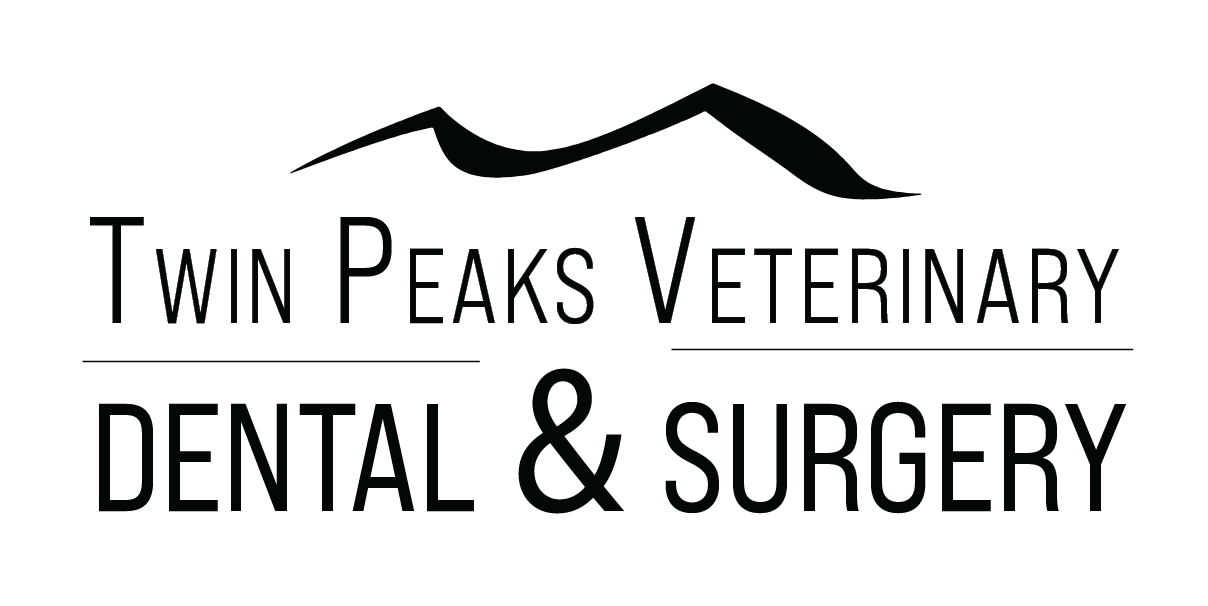Cat Dental Care
Just like humans, cats need regular dental care to maintain overall health. Cats are experts at hiding pain, and dental issues can often go unnoticed until they're severe. A healthy mouth helps prevent discomfort, difficulty eating, and even more serious health problems, such as infections that spread to other parts of the body.
Dental Services
- Dental Cleaning
Our skilled veterinary staff will remove tarter from each tooth and polish the enamel using specialized dental equipment. In addition to removing existing buildup, this also helps to prevent future buildup.
- Dental X-Ray
All dental cleanings at Twin Peaks include full mounth dental X-rays to give our veterinarians a complete view of your cat's mouth. About half of each tooth is under the gumline, so this is an important part of properly addressing problems.
- Oral Surgery
Tooth extractions
Gingivectomy
Oral tumor or mass removal
Why Your Cat's Dental Health Matters
Dental diseases in cats are far more common than you might think. Without proper care, these problems can lead to significant discomfort and systemic issues that can shorten your cat's life. Ensuring your cat has clean teeth and healthy gums is key to their long-term well-being.
Common Dental Issues in Cats
While cats face many of the same dental problems as other pets, they also suffer from some conditions unique to felines. Below are the most common dental issues that affect cats:
- Periodontal Disease
Periodontal disease is the most prevalent dental condition in cats, starting with the buildup of plaque and tartar on the teeth. Left untreated, it leads to inflammation of the gums (gingivitis) and progresses to damage the bones and ligaments that support the teeth.
- Tooth Resorption
Tooth resorption is a painful condition where a cat's body starts to break down and absorb the tooth, often below the gum line. It's a unique issue in cats and can affect any tooth, though the molars are most commonly impacted.
- Feline Odontoclastic Resorptive Lesions (FORLs)
FORLs are lesions that form on a cat's teeth as a result of the resorption process. These lesions can cause significant pain, especially when the lesions extend into the tooth's sensitive parts.
- Oral Tumors
Although less common, cats can develop tumors in the mouth, which may be benign or cancerous. Early detection is critical for the successful treatment of oral tumors.
Preventing Dental Disease in Cats
The good news is that dental disease is largely preventable with a proactive approach. Here are the best ways to keep your cat's teeth clean and gums healthy.
- Regular Veterinary Dental Check-Ups
Routine dental exams by a veterinarian are the best way to catch potential issues before they become serious.
- Daily Brushing
Brushing your cat's teeth at home is one of the most effective ways to prevent plaque and tartar buildup. Use a cat-specific toothbrush and toothpaste designed for pets—never use human toothpaste, as it contains ingredients toxic to cats. Start slowly, using treats and positive reinforcement to get your cat used to the sensation of brushing.
- Dental Diets and Treats
Specially formulated dental diets and treats can help keep your cat's teeth cleaner by reducing tartar. These foods are designed to be abrasive enough to scrape the teeth as your cat chews, helping to prevent plaque buildup.
- Dental Toys
Chewing on certain toys can help reduce tartar and keep teeth strong. Look for cat-specific dental toys that are designed to promote oral health.
What's Next?
Does your cat need a dental evaluation? We've got your back!
